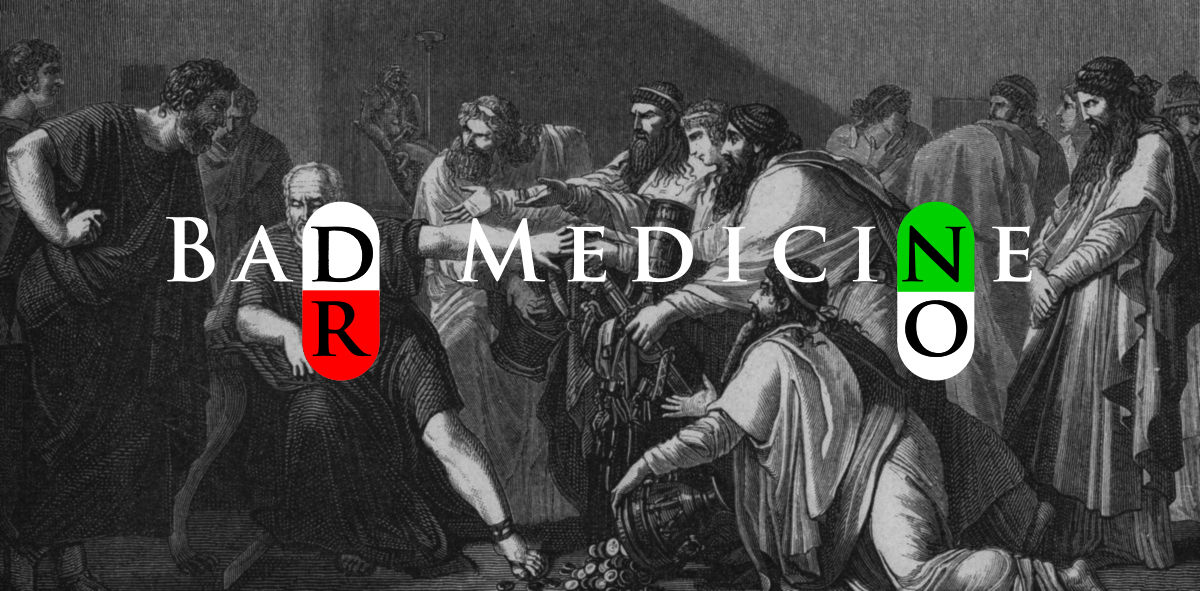Life Is But a Joke

Shall I compare thee to a turnip? Dr No has been dreaming up Odes to Nick Robinson ever since the interviewer with a voice like a squeaking balloon and a brain full of compressed air interviewed the former Supreme Court judge Lord Sumption. Sumpers was in arm chair mode (very Sumpers, very Sanderson), while Robinson gadded about like a hot rabbit in the May sunshine. Eschewing evidence in favour of philosophy, and substance in favour of trivia, Robinson repeatedly filled the pregnant minute with sixty seconds of broken arrows. Oh how one longed for an old guard interviewer! Robin Day, or David Frost perhaps, or better still Ludovic Kennedy. Ludo, a leading advocate of ‘cut the crap’, would have got straight to the point. Is the contrarian, libertarian former judge correct in his view that hard lockdown is a colossal blunder?
It is as well to be clear from the outset on a key point, because there are times when Sumption’s thoughts are not as clear as his words sound. This is that Sumption’s specific objection is to coercive lockdown. He is prepared to tolerate soft lockdown, achieved by the government issuing guidance, which citizens are free to assimilate and, if they so wish, to follow. What he is not prepared to tolerate is coercion: the passing of laws requiring a lockdown; and, if Dr No has heard and read him right, he then regrets the consequence, the voluntary acceptance by citizens of the hard lockdown, along with the ensuing fear and loathing. He distinguishes between the passing of a law, and subsequent effects arising from the passing of that law. This leaves us with a simple question that sits in an ethical minefield: to what extent is it right for a government to legislate to protect the people?
Right away, the ethical mines start popping off. These mostly public health focused laws entail curtailing the liberties of some citizens so that other citizens may be protected. The legislature is chock full of them. It is illegal to smoke in enclosed public spaces, to own dangerous dogs, to carry unlicensed firearms. In each and every case there is an inherent tension between the liberty of an individual to do as he or she pleases, even if it harms them, and a desire to protect others. We should note that a case for a prohibitory law only arises when the activity carries a risk of harm to others. There are no laws prohibiting gardening, because gardening does not harm others.
Because there is always a tension, between one person’s liberties, and another’s health or wellbeing, there is also always a balance to be struck, on where to draw the line between the activity that should rightly be prohibited, and the activity that can reasonably be allowed. We can see such a balance at work in the laws relating to driving. There is no prohibition of normal driving, despite the fact even normal driving places others at risk, because we believe the benefits of normal driving outweigh the risks. On the other hand, we do prohibit underage driving, driving under the influence and speeding because the addition of these factors changes the balance. The benefits of driving at 60mph through an urban area do not outweigh the risks.
The impulse to prohibit is both strengthened and hindered by Cicero’s ‘salus populi suprema lex esto‘ — the health of the people should be the supreme law. Note that salus best translates as health (or wellbeing), not security, as is sometimes used, and the important final esto. It is strengthened because the collectivist principle seems both self-evident and satisfactory. But, at the same time, it is hindered, because all too often salus populi suprema lex esto is the engine of and justification for the suppression of liberty up to and including tyranny and totalitarianism. What starts as a benign Hobbesian pactum subiectionis — the social contract which has citizens subject themselves completely to the authority of the state in return for protection from all threats internal and external, including plague — all too soon leads to despotism and absolutism: power tends to corrupt, absolute power corrupts absolutely. The clash between the libertarian and collectivist leads soon enough to the dystopian world of Dylan’s All Along the Watchtower, where many feel that life is but a joke. A life unlived is but a joke, but so too is a life lived in mortal fear.
Sumption’s answer, in an article published in Prospect, is that any coercive law must be justified, this depending in the case of covid-19 on three questions: (i) how serious the threat to public safety is; (ii) whether the lockdown is calculated to reduce or eliminate it; and, (iii) whether the collateral damage done by the lockdown outweighs the alleged benefits. Admirable and complete as this legal thinking is, it is subject to a fatal flaw: none of these questions can be answered yet with any certainty, if at all, if indeed ever.
The threat in (i) is in the future, and as we have seen, the numerology of modelling is hopelessly inadequate to the task of predicting what will happen as reality unfolds. Question (ii) when looked at more closely is in fact a non-question: no live pandemic threat can be eliminated entirely, so (ii) is more a statement, that the intention is a reduction in threat, and so unhelpful in making a decision, except in as far as if the intention isn’t to reduce threat, then there is no case for legislation. Question (iii) is the big one, but again suffers from the same flaw as question (i): the answer lies in the future.
It is the habit of law to marshal all the evidence and come to a judgement after the event. In medicine, we are more used to dealing with live situations — better to have a living problem than a dead certainty — and so making decisions in the face of incomplete knowledge. Doctors vary in how they approach this, and so Dr No’s suggested solution will not suit everyone. He is by nature a laissez faire, watchful waiting, disinclined to do something ‘as a precaution’ or because ‘something must be done’ sort of doctor. He would no more order a patient to have a radical prostatectomy because the patient might have cancer of the prostate than he would order a course of antibiotics ‘as a precaution’ for a probable viral illness. He believes furthermore that when there is much uncertainty, the best practice is to tell the patient what we know, and what we don’t know, and let the patient decide.
Even today, in the current pandemic, there is much we do not know. We are not even sure whether hard lockdowns work: the Scotland-Sweden natural experiment says they don’t, the Sweden-Finland natural experiment says they do. The Norwegians, based on an analysis of real data rather than some scatter-brained numerology, have concluded that hard lockdowns probably don’t work, and are disinclined to use them in the future. We have the examples of hard lockdown refuseniks even amongst those who publicly pronounce them essential. We know there are many varied harms from lockdown, but have yet to appreciate their full extent.
Back in March, we knew even less about whether hard lockdowns work, and what their harms might be. The criteria for ‘much uncertainty’ were more than fully met. In such circumstances, best practice is to tell the patient — in this case ‘the people’ — what we do and don’t know, and then let the patient — or in this case the people — decide. There is now, and never was, a justification for coercion, for a hard lockdown.
“No reason to get excited,” the thief, he kindly spoke
“There are many here among us who feel that life is but a joke
But you and I, we’ve been through that, and this is not our fate
So let us not talk falsely now, the hour is getting late.”
All Along the Watchtower, by Bob Dylan
